Two Arabian Knights (1927) is an American silent comedy film, directed by Lewis Milestone and starring William Boyd, Mary Astor, and Louis Wolheim. The film was produced by Howard Hughes and was distributed by United Artists. The screenwriters were James T. O'Donohue, Wallace Smith, and George Marion Jr.
Maginel Wright Enright Barney was an American children's book illustrator and graphic artist. She was the younger sister of Frank Lloyd Wright, architect, and the mother of Elizabeth Enright, children's book writer and illustrator.
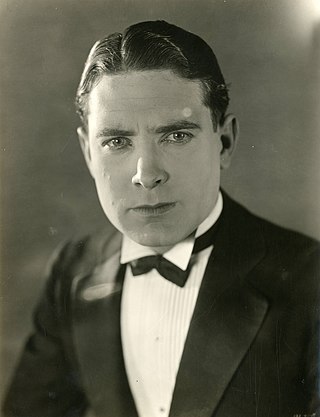
Lloyd Hughes was an American actor of both the silent and sound film eras.
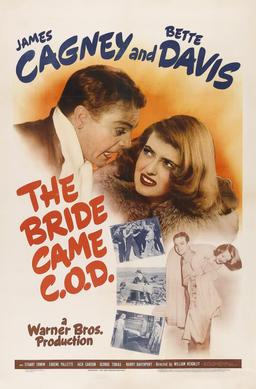
The Bride Came C.O.D. is a 1941 American screwball romantic comedy starring James Cagney as an airplane pilot and Bette Davis as a runaway heiress, and directed by William Keighley. Although the film was publicized as the first screen pairing of Warner Bros.' two biggest stars, they had actually made Jimmy the Gent together in 1934, and had wanted to find another opportunity to work together.
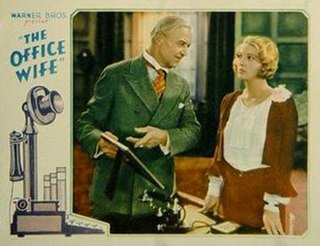
The Office Wife is a 1930 American pre-Code romantic drama film directed by Lloyd Bacon, released by Warner Bros., and based on the novel of the same name by Faith Baldwin. It was the talkie debut for Joan Blondell who would become one of the major Warner Bros. stars for the following nine years.

Dorothy Vernon of Haddon Hall is a 1924 American silent historical drama film directed by Marshall Neilan and starring Mary Pickford. The script by Waldemar Young was based upon the 1902 novel Dorothy Vernon of Haddon Hall by Charles Major.
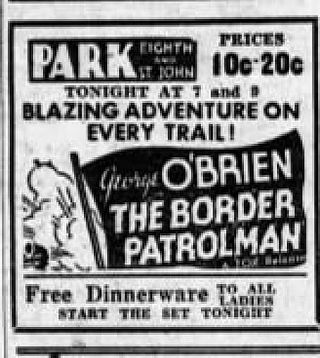
The Border Patrolman is a 1936 American Western film directed by David Howard and starring George O'Brien.
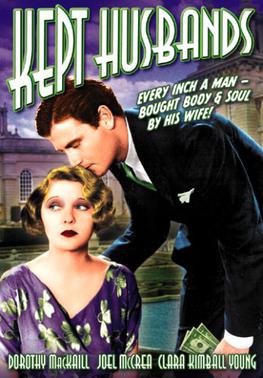
Kept Husbands is a 1931 American pre-Code drama film directed by Lloyd Bacon, starring Dorothy Mackaill and Joel McCrea, with major supporting roles filled by Robert McWade, Florence Roberts and Mary Carr. The original story was written by the film's associate producer, Louis Sarecky, and adapted for the screen by Forrest Halsey and Alfred Jackson. Although primarily a drama, the film has many comedic touches to it. The film centers around the class struggles and stereotypes between the working class and the wealthy, which was particularly striking during the Depression era when this film was made. The film also points out the stereotypical gender roles which were prevalent at that time.

Sentimental Tommy is a 1921 lost American silent drama film directed by John S. Robertson and based on the novels "Sentimental Tommy" and "Tommy and Grizel" by J.M. Barrie. The film served as a star vehicle for actor Gareth Hughes; early versions of the film featured Mary Astor, however her scenes were removed before release.

The Man with Two Faces is an American drama film directed by Archie Mayo, and starring Edward G. Robinson and Mary Astor. The supporting cast features Ricardo Cortez, Louis Calhern, Mae Clarke, and David Landau. The story was adapted by Tom Reed and Niven Busch from the play The Dark Tower by George S. Kaufman and Alexander Woollcott.
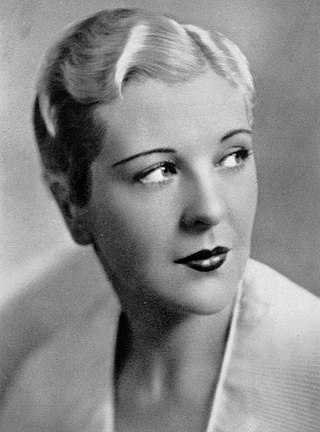
Natalie Moorhead was an American film and stage actress of the 1920s and 1930s. She was known for distinctive platinum blond hair.
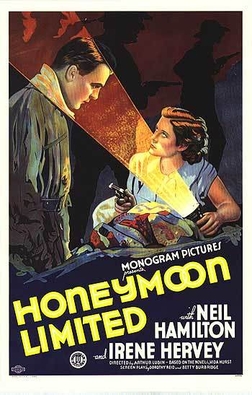
Honeymoon Limited is a 1935 American film.
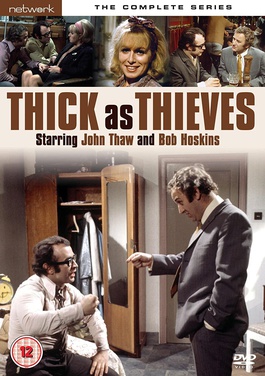
Thick as Thieves is a British sitcom which was broadcast on ITV between 1 June and 20 July 1974 and produced by London Weekend. It was created and written by Dick Clement and Ian La Frenais. There were 8 episodes over one series and starred Bob Hoskins, John Thaw and Pat Ashton.

Love Insurance is a lost 1919 American silent comedy film directed by Donald Crisp, produced by Famous Players–Lasky and distributed by Paramount Pictures. It is based on the novel of the same name by Earl Derr Biggers, Love Insurance.

Adrienne D'Ambricourt was a French-American actress of the silent and sound film eras. She was born in Paris, and emigrated to the United States after the end of World War I.
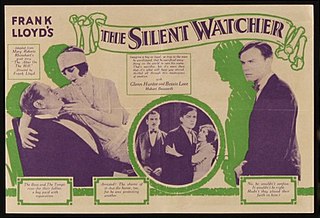
The Silent Watcher is a lost 1924 American silent melodrama film directed by Frank Lloyd. It stars Glenn Hunter and Bessie Love. It was produced by Frank Lloyd Productions/First National and distributed by First National Pictures. It was based on the story "The Altar on the Hill" by Mary Roberts Rinehart.

No Time to Marry is a 1938 American comedy film directed by Harry Lachman and starring Richard Arlen, Mary Astor and Lionel Stander.

Scarlet Saint, also known as The Scarlet Sinner, is a 1925 American silent drama film directed by George Archainbaud and starring Mary Astor, Lloyd Hughes, and Frank Morgan. The film's sets were designed by the art director Milton Menasco.
No Place to Go is a 1927 American silent romance film directed by Mervyn LeRoy and starring Mary Astor, Lloyd Hughes and Hallam Cooley.

Tom O'Brien was an American silent and sound character actor known for his burly serio-comic roles.

















